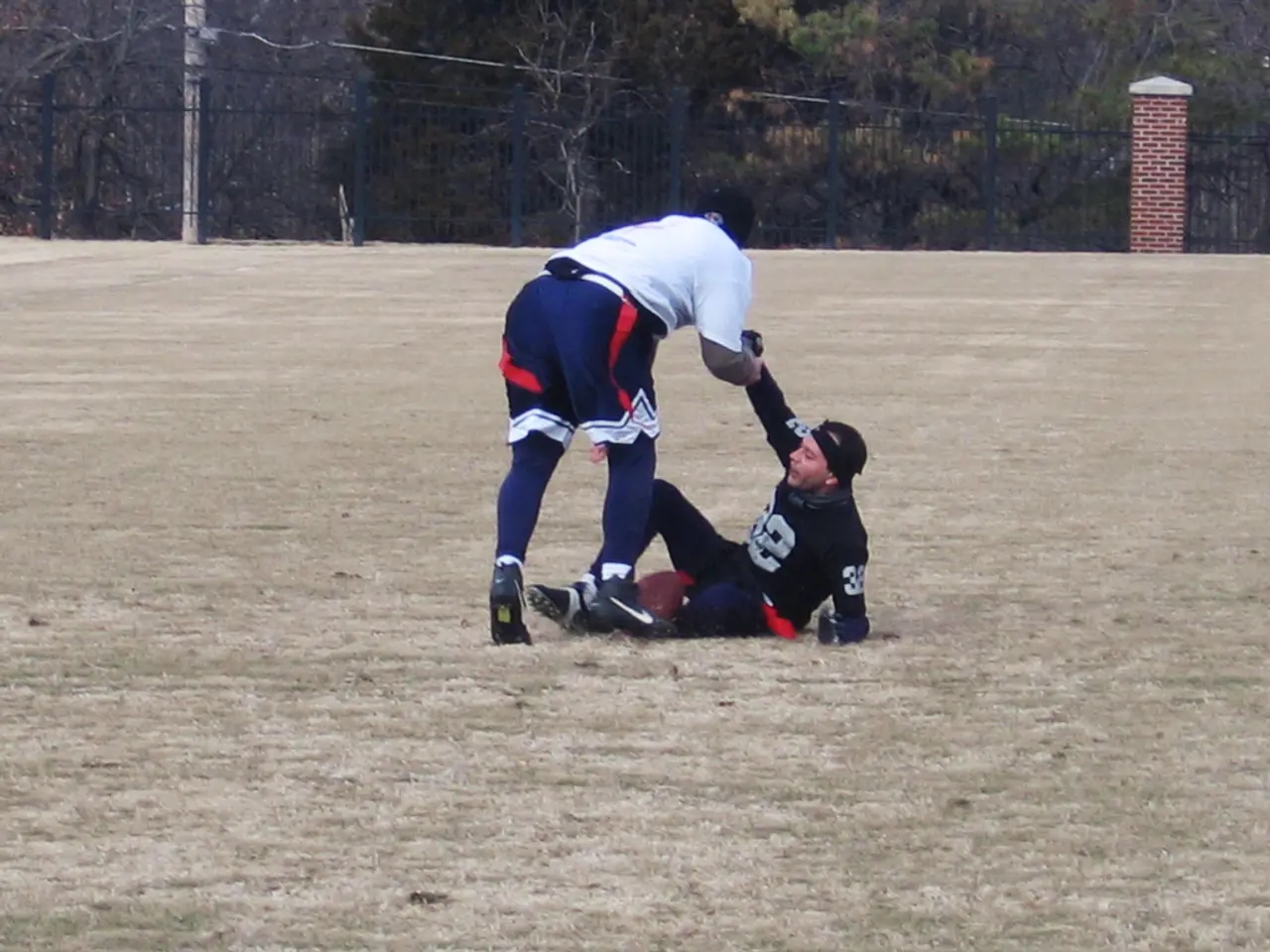Indigenous Groups File Lawsuit Against Kalshi, Accusing Them of Unlawful Sports Wagering on Native Lands
In a series of lawsuits, several Indian tribes, including the Ho-Chunk Nation and various California tribes, have accused prediction market platform Kalshi of engaging in illegal sports gambling on tribal lands. The tribes argue that Kalshi's "event contracts," which allow users to speculate on binary outcomes of sporting events, are effectively illegal sports gambling under the Indian Gaming Regulatory Act (IGRA).
The IGRA, enacted in 1988, established a system for reservations to launch, oversee, and retain revenue from gaming on their lands. For Class III gaming, including sports betting, to be conducted on Indian lands, several procedural steps are required, such as the promulgation of a tribal ordinance approved by the chairman of the National Indian Gaming Commission.
However, Kalshi claims its markets are regulated exclusively under the Commodity Exchange Act (CEA) by the Commodity Futures Trading Commission (CFTC), classifying the contracts as commodities swaps not subject to IGRA. The tribes, on the other hand, contest that these contracts are indistinguishable from sportsbook betting and seek court declarations to put them outside the CEA’s scope.
The tribes' accusations include violations of IGRA, the Racketeer Influenced and Corrupt Organizations Act (RICO), and tribal gaming ordinances and compacts. They allege that Kalshi's sports event contracts resemble unauthorized sports betting activities on tribal lands, undermining tribal gaming compacts and sovereignty. The tribes also claim that Kalshi and Robinhood, another defendant in the case, are running an illegal gambling racket causing financial harm to tribal gaming revenues.
Kalshi disagrees, insisting that its prediction markets for sports aren't sports betting since there are no odds being set. The company offers other types of event contracts, such as "Who will President Trump pardon this year."
In the case Blue Lake Rancheria et al. v. Kalshi et al., the tribes seek an injunction to prevent Kalshi and co-defendant Robinhood Markets from enabling people on reservations to place bets on their phones through Kalshi. The tribes accuse Kalshi and Robinhood of not complying with the necessary procedural steps and not being "federally recognized Indian tribes conducting class III gaming activity pursuant" to IGRA.
The outcome of this federal litigation is expected to be significant as Kalshi's ability to offer a sports product may depend on it. If the court rules in favour of the tribes, it could mean a significant blow for Kalshi's business model.
In Kalshi's event contracts, buyers who make the correct prediction will receive payment, while those who incorrectly foresee the future will get nothing in return. The company offers sports-based event contracts, such as asking users who will be the pro baseball champion, with different choices and varying prices for yes and no outcomes.
The Commodity Exchange Act of 1936 (CEA) grants the Commodity Futures Trading Commission (CFTC) exclusive jurisdiction to regulate commodities and futures on designated exchanges. However, the tribes argue that these contracts are indistinguishable from sportsbook betting and seek court declarations to put them outside the CEA’s scope, aiming for injunctions to stop Kalshi’s operations on tribal lands.
States that have legalized sports betting have done so through licensing schemes, meaning sports books and other operators must apply for, and obtain, a license from the state government before they can offer sports betting. The tribes allege that Kalshi circumvents tribal regulatory authority by claiming CFTC oversight.
This is not the first time Kalshi has been in litigation over whether its business model violates states' sports betting laws. The company has faced legal challenges in states like Nevada and New Jersey.
The case is currently ongoing, and Kalshi, in response to the complaint, will likely deny breaking any laws and revisit the legal defenses it has made in other cases.
[1] Indianz.com [2] Legal Sports Report [3] SportsHandle [4] Yahoo Finance [5] Casino.org
- The Ho-Chunk Nation and various California tribes, along with other plaintiffs, have leveled accusations against Kalshi, claiming they are involved in illegal sports gambling on tribal lands, a practice prohibited by the Indian Gaming Regulatory Act (IGRA).
- Kalshi, on the contrary, argues that its event contracts are not sports gambling under IGRA, as they are regulated solely under the Commodity Exchange Act (CEA) by the Commodity Futures Trading Commission (CFTC).
- The tribes argue that these contracts resemble unauthorized sports betting activities, undermining tribal gaming compacts and sovereignty, and have accused Kalshi of violating IGRA, the Racketeer Influenced and Corrupt Organizations Act (RICO), and tribal gaming ordinances and compacts.
- The tribes seek an injunction to prevent Kalshi and co-defendant Robinhood Markets from enabling people on reservations to place bets on their phones through Kalshi, claiming they have not complied with the necessary procedural steps outlined in IGRA.
- This federal litigation could have significant implications for Kalshi's business model, as a ruling in favor of the tribes could be a significant blow to the company's ability to offer sports-based contracts.
- The Commodity Exchange Act of 1936 (CEA) grants the CFTC exclusive jurisdiction to regulate commodities and futures on designated exchanges; however, the tribes argue that these contracts are indistinguishable from sportsbook betting, aiming for court declarations to put them outside the CEA’s scope and for injunctions to stop Kalshi's operations on tribal lands.




